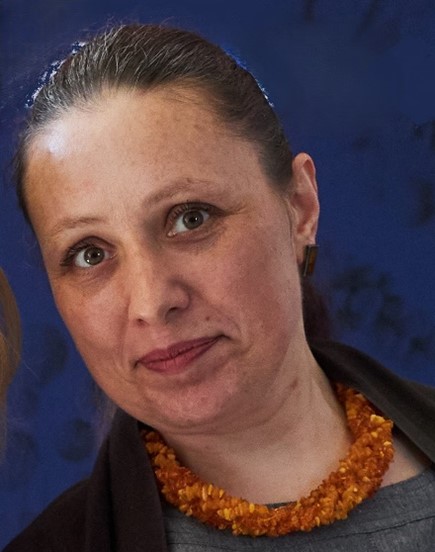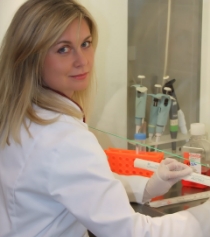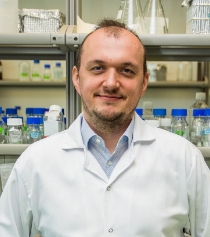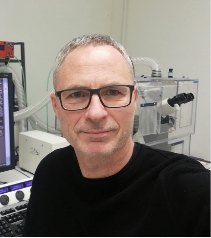Research
The molecular biology of animal and human viruses, with the special emphasis on flaviviruses and herpesviruses, is the main field of interest of the laboratory.
Viruses belonging to the former group contain single-stranded RNA of positive polarity as their genetic material and are associated with many threatening disease of humans and animals (e.g. human hepatitis C virus or porcine classical swine fever virus).
The second group – herpesviruses, is a big family of double-stranded DNA viruses which includes common human pathogens, e.g. herpes simplex 1 and 2 and varicella zoster (the latter responsible for two diseases forming its name), and many animal pathogens which are imporant not only from the economic point of view but also as model organisms for viral research.
Research
The main field of interest of the Laboratory is the application of different expression systems for the production of viral proteins that can be used as potential vaccines or constituents of modern diagnostic tests. Our research interests are also focused on identifying antiviral compounds that are potent against many dangerous viral human and animal pathogens.
The Laboratory has also actively joined the world efforts to combat the SARS-CoV-2 pandemic. Our scientific efforts to contribute to fighting this disease are listed in the later part of this description. Some of the research projects carried out in the Laboratory are also listed below: Construction of recombinant vaccines against human pandemic and seasonal influenza viruses, against Newcastle virus (NDV) and against Zika and tick-borne encephalitis (TBEV) viruses. We are trying to develop a universal vaccine against influenza virus that may protect against many strains of the virus. We plan to achieve this goal with a combined mRNA/virus-like particle (VLP) vaccine. The project is financed by the Polish National Science Agency and performed in collaboration with the Centre of New Technologies University of Warsaw. Another devastating disease is Newcastle disease. The very effective vaccine that was constructed and tested in collaboration with the Polish National Institute of Veterinary Sciences is a recombinant construct based on live attenuated turkey herpesvirus with two inserted genes of Newcastle virus. Moreover, we are trying to develop a safe and cost-effective recombinant vaccine against Zika virus. The approach to potential vaccines is based on recombinant VLPs composed of prM and E proteins produced in insect and mammalian cells. The experience gained from this project is also used to produce a potential VLP-based vaccine against tickborne encephalitis virus (TBEV).
Combatting SARS-CoV-2 – our contribution. We submitted the first full virus genome isolated directly from patients in Poland. Using Nanopore (internally) and Illumina (in collaboration with Gdansk Medical University) next-generation sequencing (NGS) technologies, we have been performing SARS-CoV-2 mutation surveillance on isolates from northern Poland on a daily basis. In collaboration with the University Clinical Centre in Gdansk and the International Centre for Cancer Vaccine Science, our laboratory is executing a study on respiratory viral coinfections in SARS-CoV-2-positive patients. In addition, under the Polish National Science Centre COVID-19 programme, we are characterizing the role of glycans and their modifications on the production and maturation of SARS-CoV-2 spike protein. Various modifications of glycoprotein S are used to produce a potential VLP-based vaccine. We plan to explore the possibilities for the improvement of a potential anti-SARS-CoV-2 vaccine leading to the elimination or at least reduction of antibody-dependent enhancement of the infection effect. Effect of synthetic glycosylation inhibitors on viral entrance and propagation in host cells. The lack of effective drugs against most viral diseases calls for intensive research in this field. We have concentrated our efforts on the development of structural analogues and mimetics of tunicamycin, an effective inhibitor of N-glycosylation of glycoproteins. A large number of synthetic compounds were obtained from Silesian Technical University in Gliwice. In the past, we tested these compounds using a few model viruses, including hepatitis C virus and influenza A virus. At present, their action is tested for Zika, TBEV and SARS-CoV-2 viruses.
Future plans. As the case of SARS-CoV-2 shows, the threat of viral diseases forces us to constantly pursue new pathogenic viruses. The present situation also shows that modern vaccinations are the most efficient tools to combat viral diseases. Hence, the construction of vaccine prototypes is of paramount importance for future therapies. We shall pursue this line of research with respect to the pathogens that we are already studying but shall also be prepared to contribute to the fight against new and re-emerging viral diseases.










